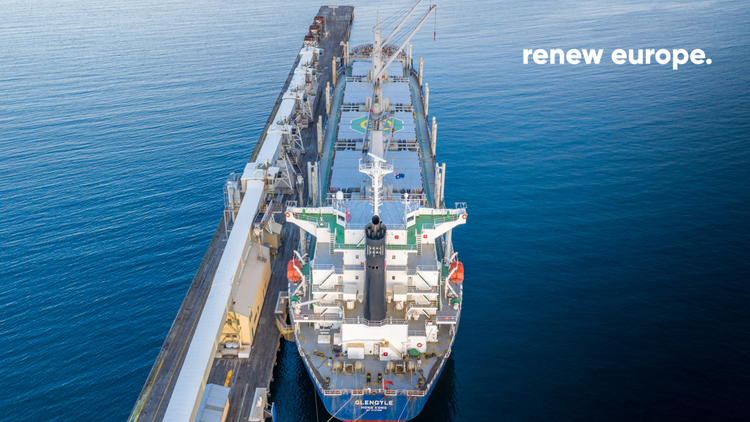Fuel EU Maritime: Balanced deal increases climate ambitions and safeguards EU competitiveness to kick-start maritime decarbonisation

Last night, the EU made a significant step towards accelerating the green transition of the maritime sector, when the European Parliament, the EU council and the Commission reached an agreement on the FuelEU Maritime Regulation. The legislation’s objective is to decarbonise the maritime sector by increasing the use of alternative fuels in vessels and on shore power supply in ports to decrease emissions and air pollution. Currently, around 98 percent of the vessels still run on fossil fuels and in order to reach Climate neutrality by 2050, the maritime sector needs to transform.
The agreed deal concerns ships, which represent around 55 percent of the vessels fleet and 90 percent of CO2 emissions by the maritime sector. The greenhouse gas intensity reduction targets for vessels are increased compared to the Commission proposal, providing a clear and ambitious trajectory, as well as legal certainty for the sector. Certain specific conditions and situations are also taken into account, giving for example outermost regions and islands some additional time to adapt.
Thanks to Renew Europe Group’s efforts, the deal recognises and encourages innovative technologies and front runners, taking into account the energy reductions from, for example, wind propulsion. In addition, Renew managed to future-proof the legislation with an obligation for the Commission to consider enlarging the scope of the Regulation in the upcoming years. There is also an inclusion of measures to incentivise the swift uptake of renewable fuels of non-biological origin (RFNBOs). Legal coherence was ensured by aligning the scope of the on-shore power supply deployment and the related provisions with the Alternative Fuels Infrastructure Regulation (AFIR), which is expected to be concluded next week.
Elsi KATAINEN (Suomen Keskusta, Finland), Renew Europe shadow rapporteur within the Parliamentary Committee of Transports, commented :
‘’The FuelEU Maritime Regulation will play an essential role in the decarbonisation of the maritime sector. I am pleased that the agreement reached is balanced, incentivising the uptake of alternative fuels, while at the same time safeguarding the EU fleet’s competitiveness at a global level. In order for us to reach EU’s objective of climate neutrality by 2050, the maritime sector must reduce emissions and transition to using more sustainable fuels. This regulation will make EU the global leader in maritime decarbonisation, hopefully paving the way for international legislation in this field. I am confident that this will also create further business opportunities for EU’s innovative maritime industries.”
